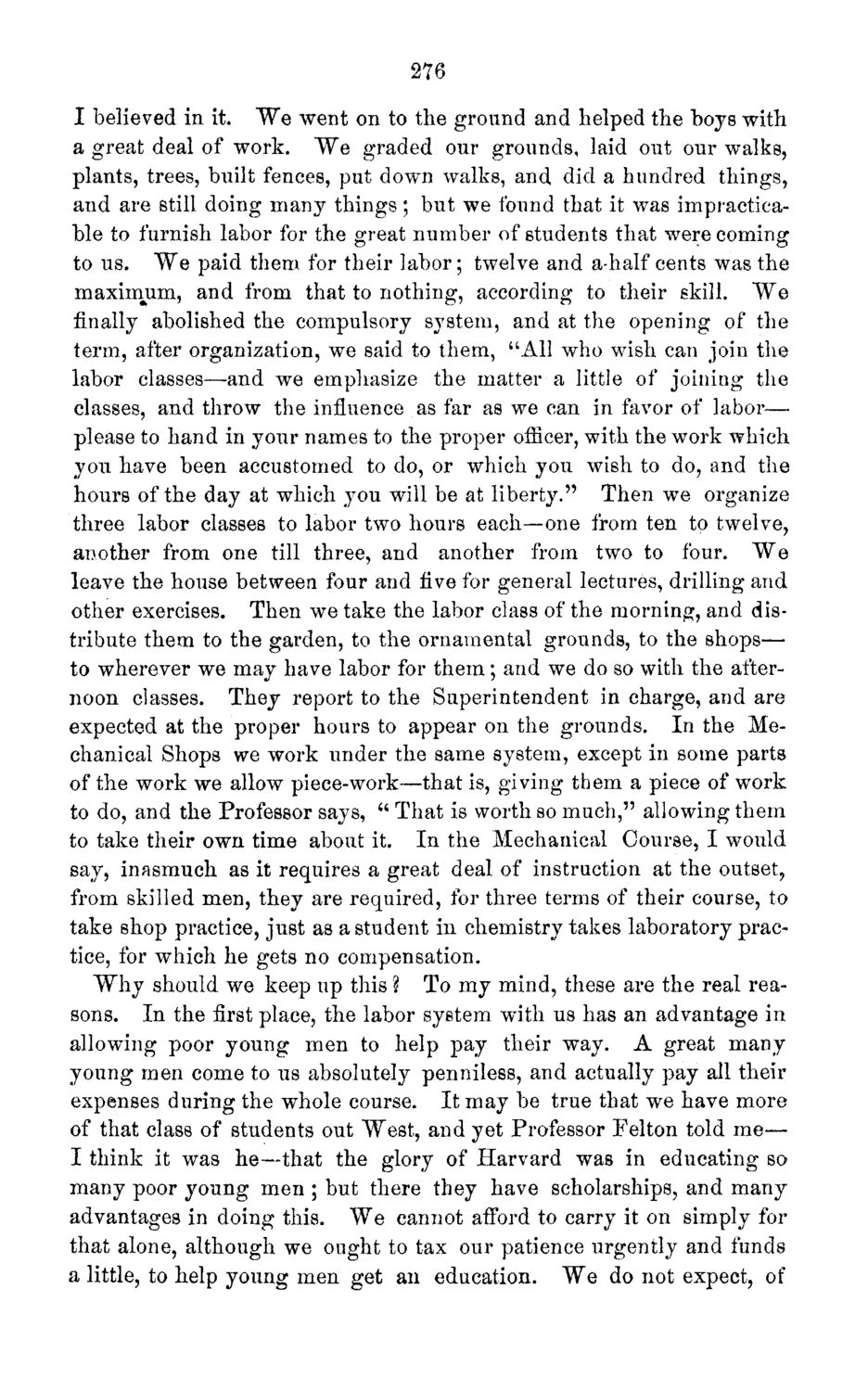| |
| |
Caption: Board of Trustees Minutes - 1871
This is a reduced-resolution page image for fast online browsing.

EXTRACTED TEXT FROM PAGE:
276 I believed in it. We went on to the ground and helped the boys with a great deal of work. We graded our grounds, laid out our walks, plants, trees, built fences, put dowTn walks, and did a hundred things, and are still doing many things; but we found that it was impracticable to furnish labor for the great number of students that were coming to us. We paid them for their labor; twelve and a-half cents was the maximum, and from that to nothing, according to their skill. W e finally abolished the compulsory system, and at the opening of the term, after organization, we said to them, "All who wish can join the labor classes—and we emphasize the matter a little of joining the classes, and throw the influence as far as we can in favor of labor— please to hand in your names to the proper officer, with the work which you have been accustomed to do, or which you wish to do, and the hours of the day at which you will be at liberty." Then we organize three labor classes to labor two hours each—one from ten to twelve, another from one till three, and another from two to four. W e leave the house between four and five for general lectures, drilling and other exercises. Then we take the labor class of the morning, and distribute them to the garden, to the ornamental grounds, to the shops— to wherever we may have labor for them; and we do so with the afternoon classes. They report to the Superintendent in charge, and are expected at the proper hours to appear on the grounds. In the Mechanical Shops we work under the same system, except in some parts of the work we allow piece-work—that is, giving them a piece of work to do, and the Professor says, " That is worth so much," allowing them to take their own time about it. In the Mechanical Course, I would say, inasmuch as it requires a great deal of instruction at the outset, from skilled men, they are required, for three terms of their course, to take shop practice, just as a student in chemistry takes laboratory practice, for which he gets no compensation. W h y should we keep up this ? To my mind, these are the real reasons. In the first place, the labor system with us has an advantage in allowing poor young men to help pay their way. A great many young men come to us absolutely penniless, and actually pay all their expenses during the whole course. It may be true that we have more of that class of students out West, and yet Professor Felton told me— I think it was he—that the glory of Harvard was in educating so many poor young men ; but there they have scholarships, and many advantages in doing this. We cannot afford to carry it on simply for that alone, although we ought to tax our patience urgently and funds a little, to help young men get an education. We do not expect, of
| |